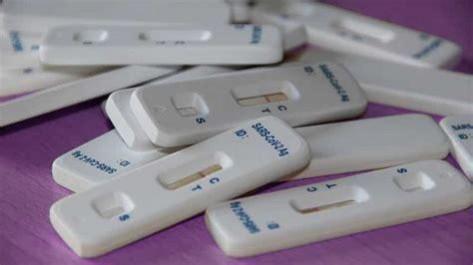The Zoe Covid study app asked hundreds of thousands of people to log their symptoms and the investigators have been looking at ones linked to both the dominant Delta variant and the new highly transmissible variant Omicron.

The most common signs of the virus reported between December 3 and 10 were a runny nose, headache, fatigue, sneezing, and a sore throat, the Daily Mail reported. The study suggests that the super mutant virus is more akin to a cold than Covid.
On the contrary, typical Covid symptoms include a continuous cough, high temperature or change/loss of their sense of taste and smell.
Epidemiologist Professor Tim Spector, lead scientist of the ZOE Symptom Tracking Study, has urged Britons to keep an eye out for these tell-tale signs of Omicron in the run up to Christmas, and before meeting friends and relatives, the report said.
"Hopefully people now recognise the cold-like symptoms which appear to be the predominant feature of Omicron," he said.
"Omicron symptoms are predominantly cold symptoms, runny nose, headache, sore throat and sneezing, so people should stay at home as it might well be Covid.

"Ahead of Christmas, if people want to get together and keep vulnerable family members safe, I'd recommend limiting social contact in the run up to Christmas and doing a few Lateral Flow Tests just before the big family gathering."
The warning comes alongside numerous reports that Omicron causes milder illness than past variants but scientists are still trying to untangle whether it is intrinsically weaker or if the population has higher levels of immunity, or even both.

In separate comments this week, Professor Spector said "classic" Covid symptoms like a fever, cough, or loss of smell, are now only present in the minority of cases.
He added that Omicron appears to be chipping away at the UK's vaccine protection from infection, but that jabs were still critical to protecting people.
"We are also seeing two to three times as many mild infections in people with boosters in Omicron areas as we do in Delta variant areas, but they are still very protective and a vital weapon," he said.
Data from the UK Health Security Agency (UKHSA) also shows that the number of Covid positive cases which are so mild they show no symptoms have also steadily increased since vaccines started being rolled out on mass earlier this year.
However, Chief Medical Officer Chris Whitty dismissed these early findings and called for "serious caution".














